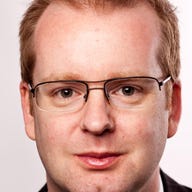Aussie start-up execs hit Silicon Valley

The global financial crisis might have tarnished some of Silicon Valley's lustre, but for many Australian technology entrepreneurs, it hasn't lost its bright, shiny status. And looking back across the Pacific, Australia's much-vaunted lifestyle offers little incentive for them to come back.
Ben Keighran made his name in the US a couple of years ago with Bluepulse, a mobile messaging and content service that raised US$6 million from the Valley-based VC (venture capital) firm VantagePoint. In 2007, Keighran even got himself named by BusinessWeek as one of America's top entrepreneurs aged less than 25.
He exited Bluepulse with a wad of cash more than a year ago — the service has since been re-branded as aphoot and is focusing on developing markets. Keighran has been taking some time out professionally while still playing with a couple of business ideas. But he says he is now ready to jump back into building a business again, probably in the mobile sector.
And he will do it from Silicon Valley. The last two years have seen an explosion in interest in mobile applications and services in the US, fuelled in part by the emergence of the iPhone as an application development platform. However, Keighran thinks that the future may lie with web-based applications that run on any handset.
Marty Wells got to San Francisco two years ago with Tangler, an Aussie start-up that creates commenting software for online forums. When it became clear that Tangler itself would never become a major destination on the internet, the company shifted focus to selling its technology to other companies. Wells handed the reins to co-founder Alex von Kotze, and became vice president of the Australian mobile messaging start-up mig33, which had raised US$23 million from VCs and boasts 25 million registered users.
Mig33 has since switched its headquarters to Singapore, but Wells is staying on in San Francisco.
"It's not for the faint of heart," Wells says. "Competition is fierce, and whilst I found it easy to gain surface level relationships with people, accessing the core power groups has been a long and slow process of having to prove my worth, and maybe just a little of proving that I'm here for the long haul. There are so many transient people coming to put their toe in the water and ultimately not stay, that I can see why this culture has emerged."
"My intent with coming here was to jump into a bigger pond, and the more time I spend here the more value I get from it. I wouldn't swap the experience for anything."
Another Aussie to base himself in San Francisco is Chris Saad. Saad was the co-founder of Faraday Media, whose Particls technology was designed to help consumers track their favourite websites by alerting them when their content changed.
He is also part of the team behind the DataPortability Project and co-created Attention Profiling Mark-up Language (APML) along with Faraday co-founder Ashley Angell. These days he is vice president of product and community strategy at JS-Kit, creators of an online commenting system called Echo, and has subsequently pulled away from Particls.
Meanwhile, Omnidrive founder Nic Cubrilovic continues to work with TechCrunch founder Michael Arrington on the forthcoming CrunchPad tablet PC.
One thing they all talk about is the comparative ease of running a start-up and doing business in the San Francisco Bay Area. Lawyers, accountants and banks are all geared towards the needs of pre-revenue companies — you don't need six months of financial records to sign a lease.
But according to another San Francisco-based Australian, Elias Bizannes, many of the benefits of Silicon Valley are psychological and social in nature.
"In Australia it's about catching up, whereas here in the Valley it's about disrupting and innovating on a global scale," he says. "The brilliance of this place is that it has people from all around the world, and are all self-selecting people, who want to achieve common things in their life."
Bizannes is working in San Francisco as manager of the finance department at vertical search engine vast.com, but was also the creator of the Silicon Beach community for Australian technology entrepreneurs.
As fond as he is of his home country, he says the opportunities in the US are just too alluring.
"The difference really comes down to the fact Australia doesn't have a critical mass and concentration," Bizannes says. "But rather than wait 10 years before we get to a stage where we can be proud of our local industry, people like me have decided to experience life overseas and get some actual experience."
"The secret to the Valley is through a multitude of alumni networks, where people cross-collaborate and invest in each other. Australia doesn't really have that, but with time I'm sure we will."